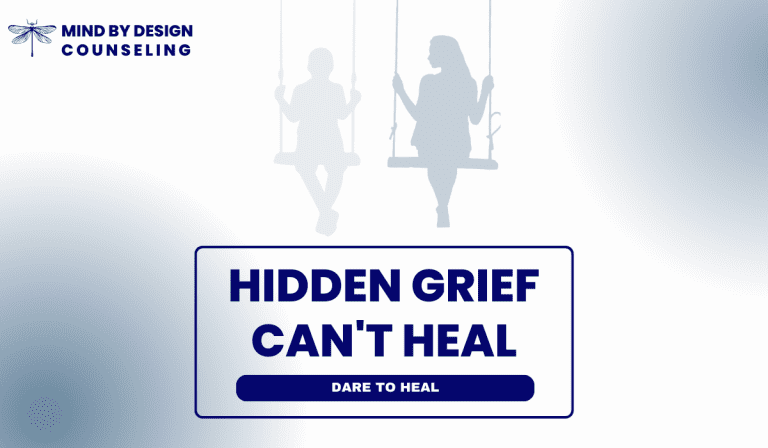Online Grief Counseling
| Compassionate Therapy in New Jersey
trusted experts in grief counseling
Grief counseling stands as a beacon of support for numerous forms of grief. While the loss of a loved one is a common cause of sorrow, grief can also stem from a wide array of other life changes. This includes the end of a marriage or partnership, losing a job, facing health challenges, the loss of a cherished pet, and many other situations. It’s not uncommon to find yourself grappling with more than one type of grief simultaneously. Online grief counseling offers a space to understand and process your feelings, ensuring that whatever the source of your grief, you’re not navigating this journey alone.

The goal of grief therapy is not to confine your experience within a predetermined framework, but to assist you in finding your own path through the grieving process, one that honors your unique emotions and experiences.
Our online grief counselors will be with you through your grief process, helping to normalize and validate your feelings.
Grief counseling allows for clients to gain a better understanding of the emotions that surround grief, as they may range in intensity, duration and frequency.
Therapy will lead you to process grief in a safe and validating environment to help you to adjust and come to terms with your feelings of loss.

Find More Resources on Grief, Loss & Bereavement Here
“Our therapist has helped our child through many rough patches and has been available above and beyond what we would expect.”
-Mind By Design Client
Online grief counseling
Tailored to Your Needs
Personal beliefs, type of loss, cultural backgrounds, and spiritual practices influence individual grief experiences. Our online grief counseling focuses on the individual’s personal grief experience. Therapy for grief may look different for different needs and may include:
- Individual Psychotherapy:
- This is a one-on-one therapy session with a licensed therapist, focusing on the individual’s personal grief experience.
- Bereavement Groups:
- These are support groups specifically for people who are grieving. They provide a space to share experiences and feelings with others who have experienced a similar loss.
- Cognitive Behavioral Therapy (CBT):
- This type of therapy helps individuals identify and change negative thought patterns and behaviors related to their grief.
- Creative Art Therapy:
- Involves the use of creative techniques like drawing, painting, or sculpting to help express emotions and process grief.
- Meditative or Relaxation Techniques:
- These techniques, including mindfulness and meditation, help in managing the stress and anxiety that often accompany grief.
Grief is a path that doesn’t necessarily get easier, but with the right guidance, like online grief counseling, you can learn to navigate it with strength. Grief counselors are there to support you, helping you to understand and adapt to the changes in your life after a loss.
When to Reach out for Grief SUpport
Sometimes it’s hard to know when it’s time to find support and therapy for grief. If you’re encountering any of the following feelings or behaviors, it might be time to consult a healthcare professional or a qualified online grief counselor:
- Persistent longing for the person you’ve lost, even after a considerable amount of time has passed.
- Constantly revisiting and dwelling on the moment of their passing.
- Ongoing feelings of despair, loneliness, and sadness that don’t seem to fade.
- Finding it hard to believe or accept the reality of the loss.
- Struggling to engage in work, social activities, or even everyday tasks.
- Difficulty focusing or making decisions.
- Experiencing intense and persistent grief that feels overwhelming.
- Avoiding conversations about the person, or steering clear of places or things that remind you of them, as a way to dodge the pain.
- Feeling anger, being overly self-critical, or blaming yourself for the loss.
- Using substances like drugs or alcohol, overeating, gambling, or engaging in risky behaviors to mask the pain.
- Feeling guilty for moments when you’re not thinking about the person you’ve lost.
- Having thoughts of self-harm or suicide.
Reaching out to an experienced grief counselor who can provide empathy, compassion, and understanding is self-care. Mind by Design Counseling offers several therapy options through professional, licensed therapists equipped to address your needs.
Signs & Symptoms of Grief
Just as there are stages of grief common among many people, there are also common signs and symptoms of grief that we address in online grief counseling. We call these signs and symptoms “grief indicators”. Grief indicators are the common signs and symptoms people encounter through their grief journey. Accordingly, it is essential to remember that everyone feels different emotions and goes through their own experience. Moreover, our experienced therapist can help to identify your challenges and struggles. Therefore, this validating assistance can relieve your sense of being alone.
The following are common responses to grief and loss:
- Shock, disbelief, numbness, and denial
- A profoundly intense sense of sadness
- Guilty feelings depending upon the situation of loss
- Anger and blame
- Fear, loss, and grief are often an unknown
- Physical pain
- Emotional distress and anxiety
- Disruptions in appetite and sleep habits
No "right way" to grieve
Everyone’s journey through grief is personal. For some, the clouds start to lift after six months, while for others, it might take a year or more to start feeling like themselves again. Grieving is about adapting to the emotional shifts and life changes that follow the loss of someone special or something important, like a job or a relationship. The intensity of your sorrow might lessen over time, but it’s natural to feel connected to what you’ve lost for years, especially if it played a significant role in your life.
FACTORS THAT SHAPE YOUR GRIEVING JOURNEY
- Your personality
- Your age
- Your beliefs
- Your support network
- The nature of the loss (for example, the sudden loss of a partner in an accident versus the passing of a cherished grandparent from old age)
No matter how your path unfolds, our team of grief counselors at Mind by Design Counseling are is committed to supporting you at every step.
The Process of Grief Counseling
the 5 Stages of Grief
While the concept of stages in grief has been widely accepted as a means to categorize and simplify the grieving process, we believe that this approach can sometimes diminish the deeply personal and intricate nature of grief. At Mind by Design, we advocate for an understanding of grief that transcends the conventional stage theories.
Carol Tavris, a respected social psychologist and author of “The Mismeasure of Woman” and co-author of “Mistakes Were Made (But Not by Me),” points out that stage theories “impose order on chaos, offer predictability over uncertainty, and optimism over despair.” This insight suggests that stages are often about seeking patterns and creating narratives to comprehend our experiences, rather than fully experiencing and processing them.
In our therapeutic approach, we emphasize the importance of experiencing grief in its authentic, unstructured form.
Reasons to Seek Therapy for Grief
While personal coping strategies are valuable, having a professional validate and understand your grief is equally important. Grief therapy typically involves a three-phase process: establishing recovery goals, coping and sharing the loss, and reviewing progress while planning for the future.
In such challenging times, grief counseling can be a beacon of hope.
Your therapy may involve traditional individual or group sessions, as well as alternative methods to process your loss. If a family member has passed, engaging in couple or family counseling can be beneficial.
Consulting with a grief counselor or trauma therapist in New Jersey provides a compassionate and understanding environment. There are various stages of grief, and empathetic therapy can offer the support needed for healing. Grief therapy and counseling in New Jersey guide individuals through the shock, trauma, and acute distress, ensuring the grief doesn’t consume them. You likely still have loved ones depending on you, and during intense grief, you might find yourself emotionally unavailable to them. Grief counseling can help restore your capacity to connect and care for those around you
Online grief counseling assists individuals in navigating the complex emotions following the death of a loved one, helping them adjust to a new reality. While everyone’s journey through grief is distinct, many find solace and direction in either individual or group grief counseling.
FAQ's About Our Online Grief Counseling Services in New Jersey
What is Online Therapy for Grief Counseling?
Online Therapy for Grief Counseling is a mental health service that provides emotional and psychological support via video call. It is designed for individuals experiencing grief and loss, offering a convenient and accessible way to receive counseling from licensed therapists specialized in grief therapy.
How does online therapy for grief work?
Once you sign up for our service, you will be matched with our grief counselor and scheduled for your intake appointment. Sessions are conducted via video calls, are typically 1x weekly, and are about 50-60 minutes
Is online grief therapy as effective as in-person therapy?
Studies have shown that online therapy is just as effective as in-person therapy for various mental health issues, including grief counseling. The key factors in therapy-effectiveness are the quality of the therapeutic relationship and the commitment of both the therapist and the client to the therapeutic process.
Who are the expert grief therapists?
Our therapists are licensed, trained, and experienced professionals who specialize in grief counseling. They have undergone rigorous selection and training processes to ensure they can provide high-quality support to our clients. Our top NJ Grief Therapist, Kristin Justice, LAC is an expert in helping individuals process and cope with grief. Check out her profile here:
Kristin Justice, LAC
How long does each therapy session last?
Each therapy session typically lasts between 50 to 60 minutes. However, session lengths can be adjusted based on your specific needs and preferences.
Is online therapy confidential?
Yes, confidentiality is a cornerstone of our service. All sessions are conducted through secure, encrypted platforms to ensure your privacy. Our therapists adhere to strict confidentiality agreements, ensuring that everything discussed in therapy remains private.
Can I switch therapists if I'm not satisfied?
Absolutely. It’s important that you feel comfortable with your therapist. If, for any reason, you wish to change therapists, you can do so at any time.
How do I get started with online grief counseling?
Getting started is easy. Simply visit our website, click on the “Contact Us” button, and follow the instructions to sign up. You’ll be asked to fill out a brief questionnaire, and then you can choose your therapist and schedule your first session. You can also fill out a New Client Request Form here, and one of our providers will reach out within 24 hours
Who can benefit from Online Therapy for Grief Counseling?
Anyone who is experiencing grief or loss can benefit from our grief counseling. Whether you’re dealing with the death of a loved one, the end of a relationship, or any other form of loss, our therapists are here to support you through your healing journey. We work with children, teens and adults utilizing talk therapy, art therapy & trauma-informed care.
Grief is a unique and individual journey that does not necessarily adhere to a linear path or a predefined sequence of stages. By moving beyond the limitations of stage theories, we create a space where grief can be more genuinely felt and processed.
As therapists, our role is to support you in navigating your grief in a manner that resonates with your personal experience. This involves acknowledging and validating all your emotions as they arise, without attempting to categorize them into specific stages. We aim to provide a safe and understanding environment where you can fully express your grief, in all its complexity and variability.
Together, we will explore your grief with compassion and depth, recognizing it as a natural and individual response to loss.
Individual Grief Therapy
1:1 sessions with a therapist who specializes in adolescent mental health and grief, focusing on the unique experiences and emotions of the teen.
Grief Counseling for Families
The entire family works to address grief & support each other through the grief process
Peer/Group Supports
Support groups consisting of other teenagers who are also experiencing grief, providing a sense of community & understanding among peers.
Creative Art Therapy for Grief
Utilizes creative expression as a tool for teens to explore and can be particularly effective for those who find it hard to articulate their emotions.
Mindfulness-Based Grief Therapy
Teaches teens how to use mindfulness & relaxation exercises to manage symptoms related to grief.
Traditional Talk Therapy
Helps teens identify and challenge negative thought patterns related to their grief and develop healthier coping mechanisms.
Get In Touch With An Online Therapist Today!
Call Today To Get Started
609-300-6481
Email Us
info@mindbydesignllc.com
New Client Inquiry Form
Questions? Click here








